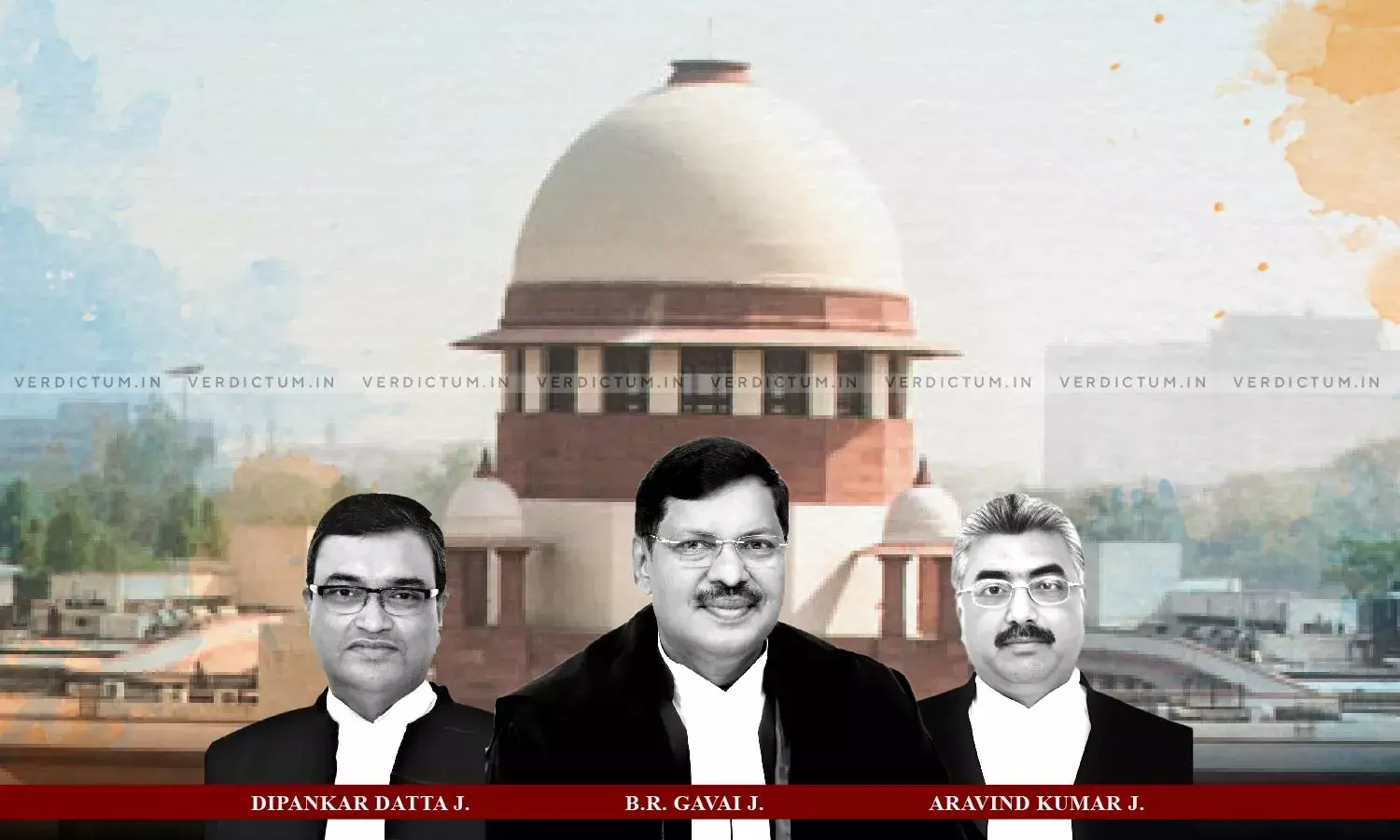Accused Cannot Be Held Guilty Merely For Absconding & Remaining Untraceable For Long Time: Supreme Court

The Supreme Court held that mere abscondence by a person after the alleged commission of crime and remaining untraceable for a long time cannot establish his/her guilt or guilty conscience.
The Court said that, in certain cases, abscondence could constitute a relevant piece of evidence, but its evidentiary value depends upon the surrounding circumstances.
The three-Judge Bench comprising Justice B.R. Gavai, Justice Dipankar Datta, and Justice Aravind Kumar, in a criminal appeal filed against the judgment of the Madras High Court by which it convicted a man under Section 304-Part II of the Indian Penal Code (IPC), observed, “.., abscondence by a person against whom an FIR has been lodged and who is under expectation of being apprehended is not very unnatural. Mere absconding by the appellant after alleged commission of crime and remaining untraceable for such a long time itself cannot establish his guilt or his guilty conscience. Abscondence, in certain cases, could constitute a relevant piece of evidence, but its evidentiary value depends upon the surrounding circumstances. This sole circumstance, therefore, does not enure to the benefit of the prosecution.”
Senior Advocate Basant R. appeared on behalf of the appellant while Advocate Joseph Aristotle S appeared on behalf of the respondent.
In this case, as per the prosecution, the victim and his wife after returning from their respective jobs went to a tea stall and he demanded Rs. 50/- being his wages from the appellant i.e., the convict. The victim was a “coconut cutting coolie” working under the convict and hearing such a demand, the convict abused him in filthy language which was followed by physical abuses by and between them.
Suddenly, the convict picked up one rubber stick and hit the victim on the front and back sides of his head while exhorting him to get lost. The post mortem report of the victim revealed that the ‘head injury’ was the cause of his death. Thereafter, the Trial Court convicted the appellant for committing murder and sentenced him to life in prison along with a fine of Rs. 1,000/- while the High Court partly allowed the appeal of the convict and sentenced him to five years’ rigorous imprisonment. Still dissatisfied, the convict approached the Apex Court.
The Supreme Court in view of the facts and circumstances of the case noted, “There seems to be no legal bar in convicting an accused resting on part of the evidence, which is primarily found to be credible and acceptable; however, where the evidence is so inseparable that any attempt to separate them would destroy the substratum on which the prosecution version is founded, then this Court would be within its legal limits to discard the evidence in its entirety. Bearing this settled principle in mind, we proceed to assess the evidence on record.”
The Court said that it is not the quantity but the quality of evidence that would matter. It further said that the circumstances surrounding the unfortunate death of the victim do not clearly and unequivocally point to the involvement of the appellant and his false implication cannot be wholly ruled out.
“We are of the firm opinion, having regard to the aforesaid discussion, that the prosecution cannot be held to have established even the accusation of culpable homicide not amounting to murder against the appellant beyond reasonable doubt and to extend the benefit of doubt to him is what the justice of the case demands; hence, he is entitled to be acquitted. Ordered accordingly”, concluded the Court.
Accordingly, the Apex Court allowed the appeal, set aside the judgment of the High Court, and acquitted the appellant.
Cause Title- Sekaran v. The State of Tamil Nadu (Neutral Citation: 2023 INSC 1062)
Appearance:
Appellant: Advocates M Gireesh Kumar and Ankur S Kulkarni, AOR Vijay Kumar, Advocates Sarath S Janardanan and Shalaka Srivasatava.
Respondent: Advocate Shubhi Bhardwaj


